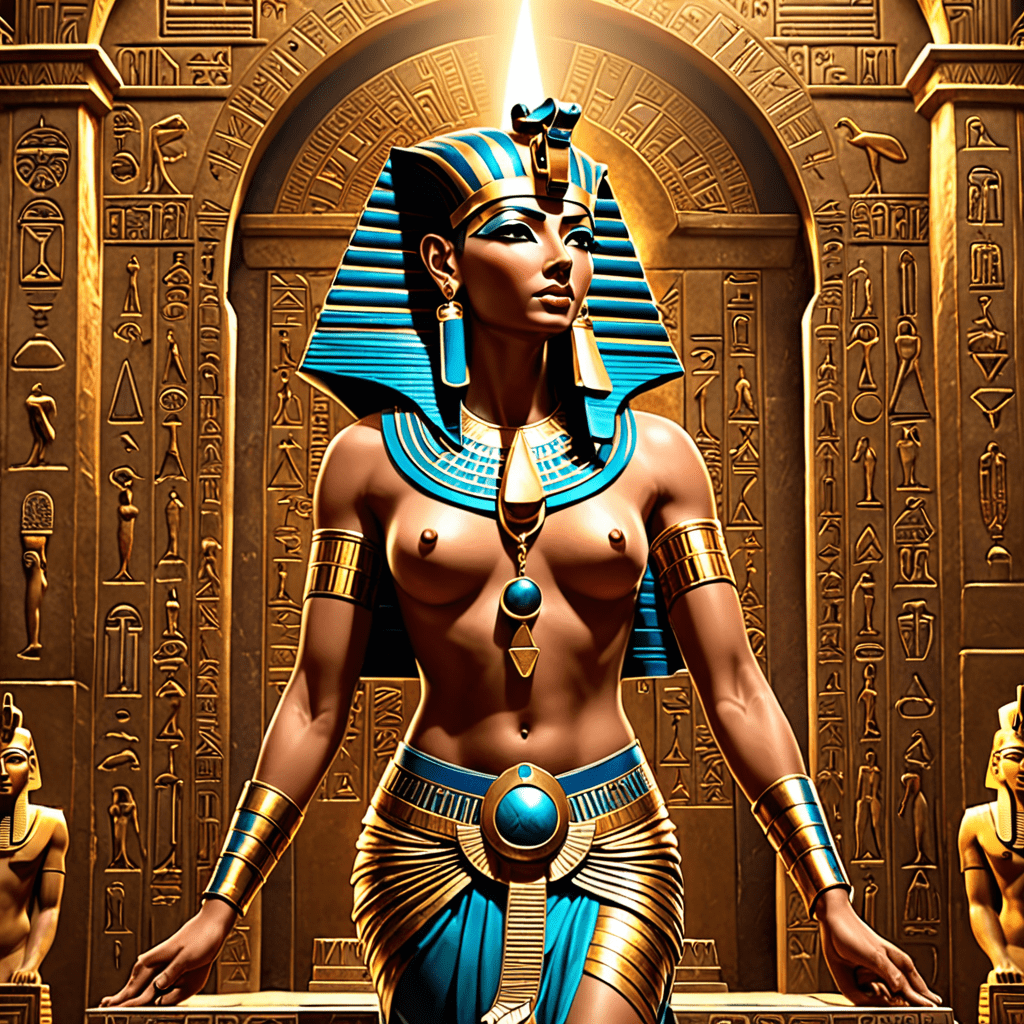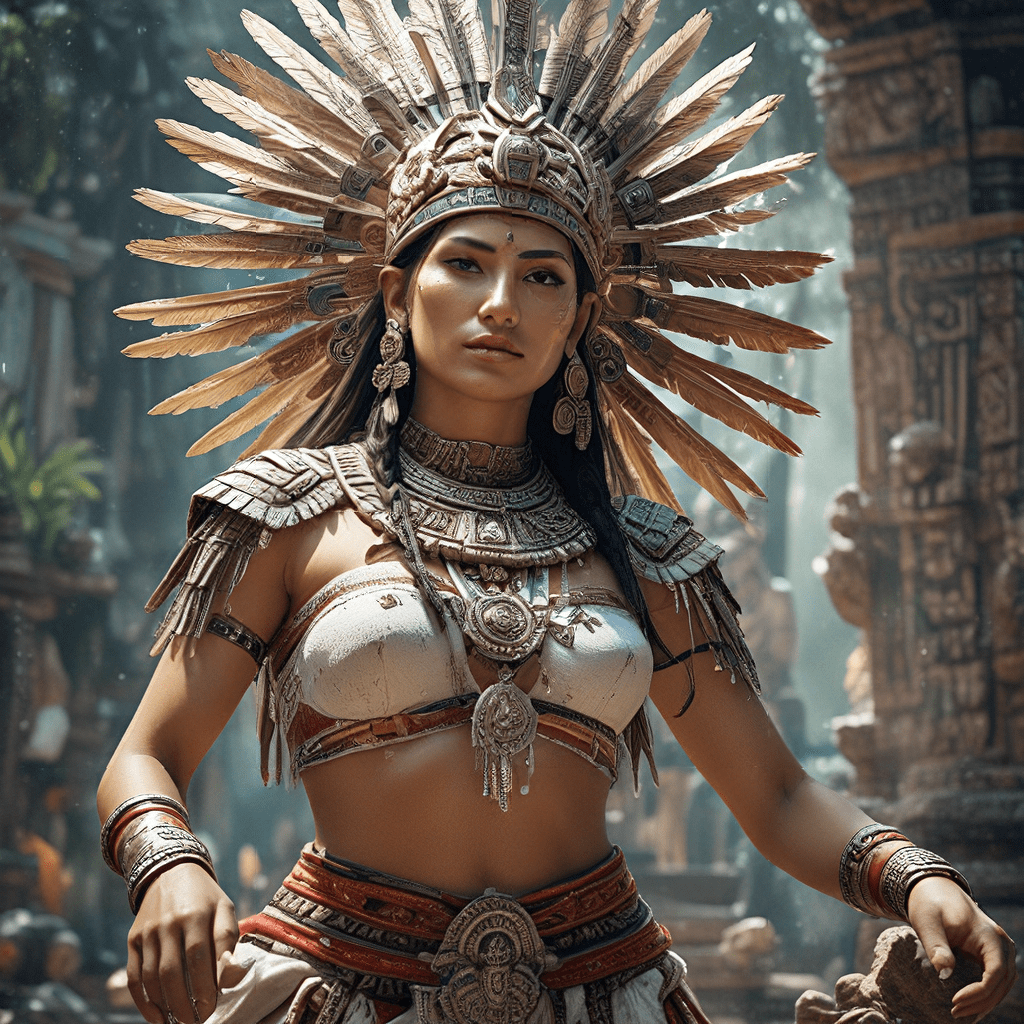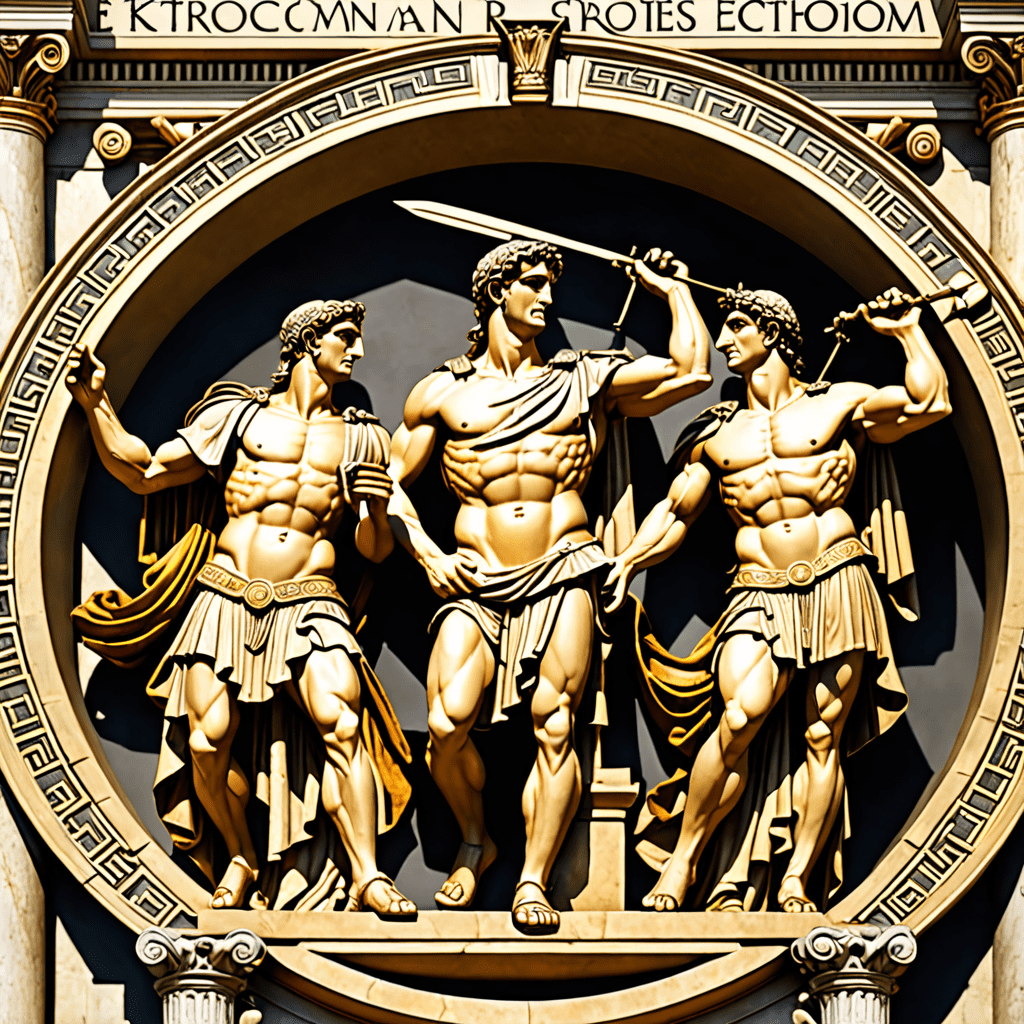The Role of Ancient Deities in Shaping Human Perspectives
I. Introduction
Deities, often defined as supernatural beings worshipped across various cultures, have played a pivotal role in shaping human thought and societal norms throughout history. These ancient gods and goddesses were not just objects of worship; they were reflections of human values, fears, and aspirations, deeply woven into the fabric of daily life. Their influence can be seen in the moral codes, art, and cultural identities of civilizations.
This article seeks to explore the multifaceted influence of ancient deities on human perspectives, examining how they shaped moral frameworks, natural understanding, gender roles, artistic expressions, and modern legacies. Through an analysis of different ancient cultures, we will uncover the lasting impact of these divine figures on contemporary society.
II. Historical Context of Ancient Deities
The emergence of polytheism in early civilizations marked a significant development in human culture. As societies evolved, so did their understanding of the world around them, leading to the creation of complex pantheons that personified natural forces and human traits.
- Key Cultures and Their Pantheons:
- Egyptians: Worshipped gods like Ra, Osiris, and Isis, who represented the sun, the afterlife, and motherhood, respectively.
- Greeks: Deities such as Zeus, Athena, and Apollo embodied various aspects of life and nature, influencing everything from politics to personal conduct.
- Romans: Adopted many Greek gods, renaming them (e.g., Zeus became Jupiter) and integrating them into their own societal norms.
- Mesopotamians: Gods like Marduk and Ishtar were central to their understanding of creation and societal order.
Mythology served as a crucial means of preserving cultural identity, allowing societies to convey values, history, and collective memory through stories that transcended generations.
III. Deities as Moral Compasses
Ancient gods often embodied the moral and ethical values of their societies, serving as exemplars for human behavior. The narratives surrounding these deities were not merely tales but lessons that guided societal laws and personal conduct.
For instance, the Ten Commandments in Judaism provide a clear framework for moral behavior, believed to be divinely ordained. Similarly, the Code of Hammurabi, attributed to the Babylonian king, reflects the influence of divine authority on justice and law.
- Divine Stories and Their Impact:
- Encouraged adherence to moral values.
- Provided explanations for human suffering and societal order.
IV. Deities and Natural Phenomena
Many ancient cultures anthropomorphized natural phenomena through their deities, attributing human characteristics to elements such as storms, rivers, and fertility. This connection provided a framework for understanding the world, especially in the face of unpredictable natural disasters or agricultural cycles.
For example, the worship of Demeter in Greek mythology was closely linked to agriculture, symbolizing the cycles of planting and harvesting. Likewise, in Hinduism, the monsoon rains are often associated with the blessings of gods like Indra.
The psychological impact of attributing control over nature to deities helped humans cope with uncertainty, fostering a sense of agency in situations beyond their control.
V. Gender Roles and Deities
The depictions of male and female deities have profound implications for understanding gender dynamics in ancient societies. Male deities often represented power and authority, while female deities were associated with fertility, nurture, and domesticity.
- Influence of Goddess Worship:
- Goddesses like Isis and Demeter empowered women, reflecting their significant roles in society.
- Contrastingly, patriarchal societies often relegated female deities to subordinate roles.
A comparative analysis reveals how different cultures represented gender through their pantheons, influencing societal norms and expectations.
VI. Deities in Art and Literature
The portrayal of deities in ancient art and architecture reveals much about the values and beliefs of a civilization. Temples, sculptures, and paintings often depicted gods in ways that emphasized their importance within society.
Literature, too, has been profoundly influenced by deity narratives. Works such as Homer’s “Iliad” and the “Epic of Gilgamesh” intertwine human experiences with divine interventions, illustrating how ancient peoples understood their place in the cosmos.
- Analysis of Specific Works:
- Homer’s “Iliad”: Explores themes of fate, honor, and the influence of gods on human affairs.
- Epic of Gilgamesh: Reflects on mortality and the quest for eternal life, showcasing the relationship between humanity and the divine.
VII. Rituals and Worship Practices
Rituals serve as a vital connection between humans and the divine, facilitating a communal experience of worship. These practices vary widely across cultures but often share common elements, such as offerings, prayers, and festivals.
Different cultures have their unique rituals:
- Greek Festivals: Celebrated deities like Dionysus through theatrical performances and wine offerings.
- Hindu Puja: Involves daily worship rituals including offerings of food, flowers, and prayers to deities.
The evolution of these practices not only reflects changing beliefs but also fosters community cohesion, reinforcing shared values and identities.
VIII. The Legacy of Ancient Deities in Modern Society
Despite the decline of ancient polytheistic religions, the legacies of these deities continue to resonate in contemporary society. Many modern religions incorporate elements of ancient beliefs, showcasing a continuity of thought and practice.
Additionally, ancient mythology has had a profound influence on modern literature, film, and art. From Marvel’s Thor to the retelling of Greek myths in contemporary novels, the narratives of these ancient deities continue to inspire and captivate.
The psychological and cultural significance of ancient deities remains relevant today, as they provide a lens through which to explore human nature, morality, and the mysteries of existence.
IX. Critiques and Reevaluations of Ancient Deities
In modern discourse, the relevance of ancient deities is often debated, especially in the context of polytheism versus monotheism. Scholars critically examine these ancient beliefs, questioning their implications and significance in today’s diverse religious landscape.
As the understanding of ancient deities evolves, so too do the interpretations of their roles within human history. The continuous dialogue surrounding these figures ensures that they remain a vital part of our cultural heritage, encouraging us to reflect on the complexities of belief and the human experience.




